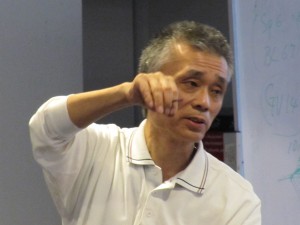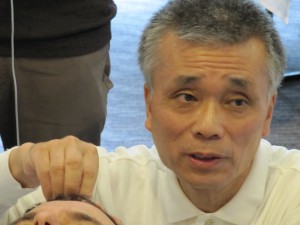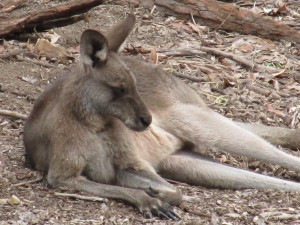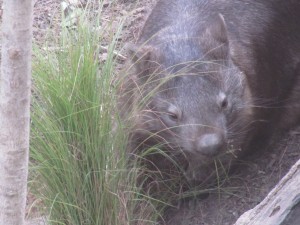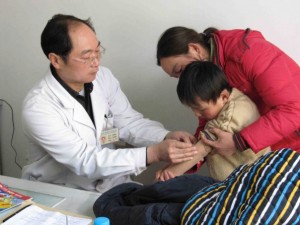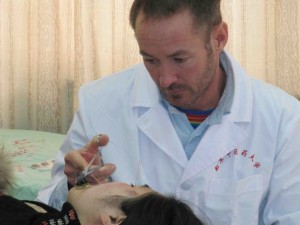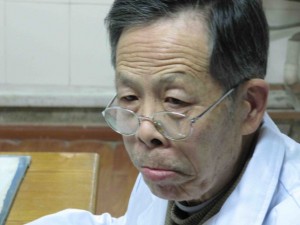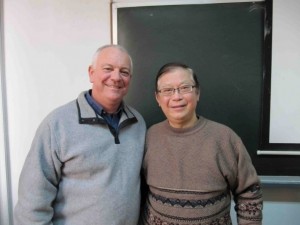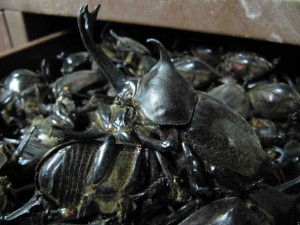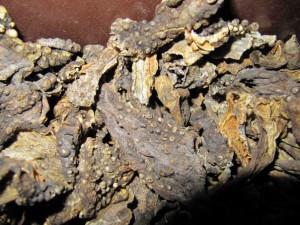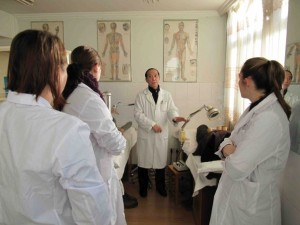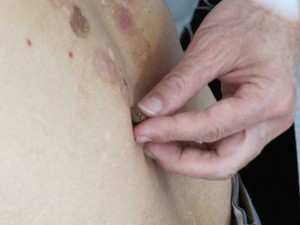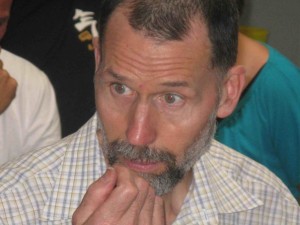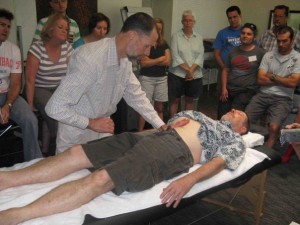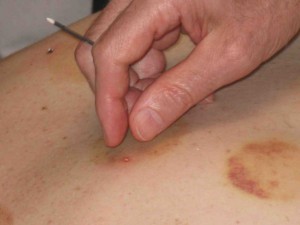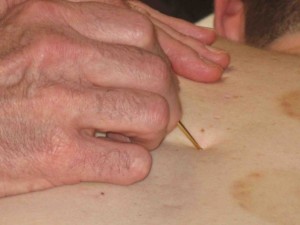Explorations in traditional Japanese Moxibustion Therapy
with Junji Mizutani
“Junji Mizutani was led to the practice of traditional Japanese medicine through a teacher practicing the Sawada style, he has a passion for traditional approaches coupled with a no-nonsense pragmatism. Direct moxa has a central role in the Sawada style and he has remained close to his roots while absorbing other approaches. Junji has established himself as an authority and proponent of moxibustion in North America.” Stephen Brown.
Moxibustion Therapy was mentioned as an integral part of treatment in the Huang Di Nei Jing Su Wen (150 BCE). It is a stand-alone therapy, useful in the treatment of a wide variety of conditions. It is also one of the most useful health preservation therapies. Junji will give an introduction to moxibustion, its functions and indications. This workshop will focus on many of the most widely used techniques as developed by Japanese practitioners, with examples of treatment strategies. Junji will demonstrate all techniques and there will be time for practice and questions. He will cover a variety of treatment strategies, local, whole body (Sawada style), special effect points, autonomic nervous system balancing, needle and moxa combinations etc.
Weekend participants will learn:
-An introduction to the functions and indications of traditional Japanese moxibustion therapy
-How to palpate and accurately locate points requiring moxa, sensations felt by patients
-Sawada style whole body treatment
-Local treatment and special effect points
-Autonomic nervous system balancing treatment
-Combination needle and moxa treatment
-Some examples of traditional Japanese indirect moxibustion
-When is enough moxa enough?
Monday participants will learn:
Junji will cover moxibustion for gynecology and digestive disorders. He will share some of his personal clinical experience and cases. He will demonstrate how to use these in treatments.
Where: Walkabout Creek – Banksia room – Brisbane Forest Park
60 Mt Nebo Road, The Gap, Qld www.walkaboutcreek.com.au
When: July – Saturday, 24, Sunday, 25 and Monday, 26, 2010 8.30 a.m. – 4.30 p.m.
Cost: Saturday & Sunday $395 AACMA Member $10 discount
Monday only $185 AACMA Member $10 discount
All 3 Days $460 AACMA Member $10 discount
Early bird discount full payment by June 13, $440 for 3 days
Includes: Moxa kits – moxa pen, incense, moxa, shiunko cream, bamboo tube and wood blocks for rolling threads.
Junji Mizutani, born and raised in Japan, he graduated from Japan Central Acupuncture College in Tokyo in 1983 and obtained his license to practice shiatsu, acupuncture, and moxibustion in Japan. In 1983 he continued his study at Kikkawa College, Toronto, Canada, going on to join their teaching faculty. He moved to Seattle in 1992 where he is in private practice. He is also a practitioner and teacher of shiatsu. Junji travels widely teaching, mostly on moxibustion. He is a well-known and popular teacher in North America. He is a founding member, and director of the North American Journal of Oriental Medicine devoted to traditional Japanese medicine.
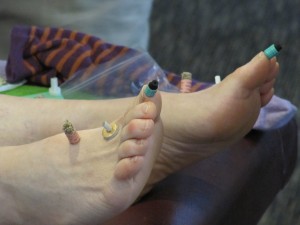
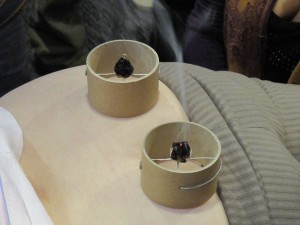
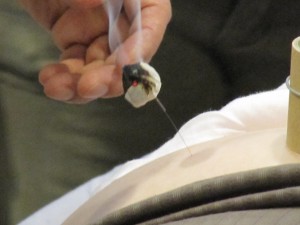
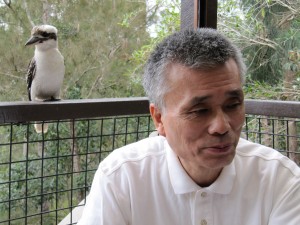
Nanjing Study Trip, January 2010
A three week trip to the Nanjing University of Traditional Medicine in China. Greg arranged a study trip to one of China’s premier training Universities. We spent mornings in clinics with talented practitioners treating patients and benefitting from their clinical experience. In the afternoon we had classes on formulas with Huang Huang, gynecology with Wang Ling Ling, moxa with Tao Kun, abdominal palpation and more. Between these we visited with older generation herbalists to discuss, observe and for prescriptions.
It was fun to sample good food from the many small side walk eateries and other abundant restaurants. Weekend and evening trips to temples, beautiful gardens, art galleries and bookshops. We had a few days relaxation in Shanghai at the end
Visit the site from time to time to learn about upcoming trips.
Needling a young patient, who had suffered a fall Adam practicing some interesting moxa techniques
Elderly & deeply experienced senior clinicians to study with Tao Kun, one of the best moxa practitioners
Some interesting “herbs” in the pharmacy. These are toad skins, something like our cane toads, for help with some severe illnesses
With Dr Liu working on differential diagnosis His gentle hands & magic herb balls applied to points
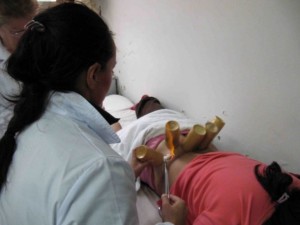
Practicing cupping for low back pain
Explorations in Meridian Therapy
with Stephen Brown
“Stephen is one of the finest exponents of traditional Japanese acupuncture and allied arts. He is a gifted teacher and guide. Take every opportunity to study with him.” Greg Bantick
Meridian Therapy is the dominant form of traditional acupuncture in Japan. This system based on the Nanjing (Classic of Difficulties) and the five phases relies on refined pulse taking and palpation skills combined with subtle needling techniques. This workshop will introduce the theory, palpation techniques, and five phases treatment strategies of Meridian Therapy. Shudo Denmei, one of the leaders of Meridian Therapy in Japan, has a refined and simplified approach. Stephen Brown, the leading exponent of the Shudo style, will teach the refinements in Meridian Therapy. In addition, Stephen will also present some of Shudo Demei’s symptomatic strategies using super-rotation insertion, moxibustion, and intradermal needles. This workshop will provide ample time for hands-on practice for a working understanding of Meridian Therapy.
Friday participants will learn:
Stephen will share some of his personal clinical experience with an emphasis on self-care, including Sotai and qi gong. He will demonstrate how to use these in treatments.
Weekend participants will learn:
-an introduction to the history of Meridian Therapy and its stylistic variations
-pulse diagnosis for diagnosis and treatment
-how to palpate and accurately locate points requiring tonification
-superficial insertion techniques for tonification and dispersion
-how to palpate and needle symptomatic points on the back, neck and shoulder
Where: Walkabout Creek – Banksia room – Brisbane Forest Park
60 Mt Nebo Road, The Gap, Qld www.walkaboutcreek.com.au
When: November 20, 21 and 22, 2009 8.30 a.m. – 4.30 p.m.
Cost: Friday only $140 AACMA Member $10 discount
Saturday & Sunday $330 AACMA Member $10 discount
All 3 Days $430 AACMA Member $10 discount
Early bird discount full payment by October1 $400 for 3 days
Stephen Brown, L. Ac. graduated from Japan Central Acupuncture College in Tokyo in 1983 and obtained his license to practice shiatsu, acupuncture, and moxibustion in Japan. In 1984 he continued his study in Beijing, China. He moved to Seattle in 1986 and is currently teaching at the Seattle Institute of Oriental Medicine. He is also a practitioner and teacher of traditional exercises for health including yoga, taichi, sotai, and qi gong. A native speaker of Japanese he has translated many texts and has served as an interpreter for international seminars and conferences. He is a founding member, and one of the editors of the North American Journal of Oriental Medicine devoted to traditional Japanese medicine.
Recommended Reading:
Introduction to Meridian Therapy By Shudo Denmei & Stephen Brown
Locating Effective Acupuncture Points By Shudo Denmei & Stephen Brown
